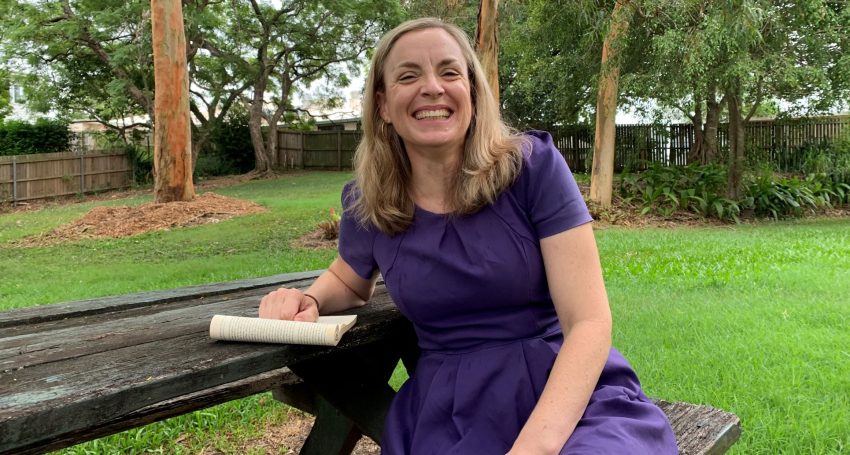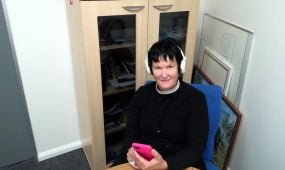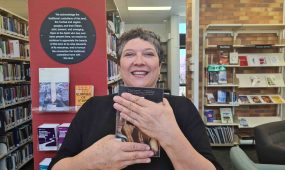The book I have given away the most and why: Michelle McDonald
Faith book reflections
“It took me by surprise when a book written by a statistician and economist turned my faith on its head. At the time, my faith was more centred on a personal relationship with Jesus, including personal prayer and personal salvation. This book led me to see that my faith would be richer if I balanced personal and communal relationships with God,” says anglican focus editor Michelle McDonald

I first encountered Small is Beautiful: A Study of Economics as if People Mattered in the 1990s while studying development economics at uni. A chapter of the book was included in a “brick” – a thick stapled collection of a subject’s readings provided to students before the Internet took off. At the time, the book was out of print, so I was delighted to stumble across a copy in a second-hand bookshop within months of reading the sole chapter.
The book is stunning – even prophetic in parts. The author’s prediction that excessive consumption would threaten water security was apparently received with much derision in 1973 when the book was first published.
It took me by surprise when a book written by a statistician and economist turned my faith on its head. At the time, my faith was more centred on a personal relationship with Jesus, including personal prayer and personal salvation. This book led me to see that my faith would be richer if I balanced personal and communal relationships with God.
The book’s author, Christian economist EF Schumacher, called for a people-centred economics to enable creation’s sustainability. The collection of essays introduced me to the ideas that “human life is a dependent part of an ecosystem of many different forms of life” (p. 44) and that “a population basing its economic life on non-renewable fuels is living parasitically – on capital instead of income” (p.45). This got me thinking pragmatically about how all of God’s creation is connected, subsequently transforming my ontology towards other humans, trees, water, soil, birds, reefs, shells, air and so on.
Advertisement
As I read more about the author, I discovered that he was influenced by distributism – an economic theory, based on Catholic social teaching, asserting that the means of production (land, labor, equipment and capital that can be used to make products) should be owned widely rather than concentrated (as in the case of both capitalism and communism).
In 2021 when my entire home contents insurance policy was paid out due to mould damage, I watched on as 400 books were deemed unsalvageable by a mould restoration company. One hundred of these books were spiritual classics, which Small is Beautiful has come to be for me. I admit that I wept over seeing my copy being thrown into a skip along with Thomas à Kempis’ The Imitation of Christ, Thérèse of Lisieux’s autobiographical Story of a Soul, Hildegard of Bingen’s Secrets of God and Teresa of Avila’s The Way of Perfection.
I have recommended Small is Beautiful to many people since I first encountered it in the 1990s. Quite often I find that the people I offer a copy to or speak to about the book already own an edition. Whenever I visit a second-hand bookshop, I look for a copy to give away. Hopefully next time I’ll find two copies – a replacement for me and another to give away.
Advertisement
Small is Beautiful: A Study of Economics as if People Mattered is now available as a paperback, audiobook and eBook.
Editor’s note: The ACSQ’s first Sustainability Roadmap was launched last week. The Sustainability Roadmap lays out a framework for the different parts of our Diocesan community to formalise Sustainability Action Plans in a staged rollout.
If you would like to share with other readers what faith-related book, including those with theological, spiritual, ministry, Church history or justice themes, you have given away (or referred) the most and why, please email the Editor, Michelle McDonald, and she will let you know what is needed.






